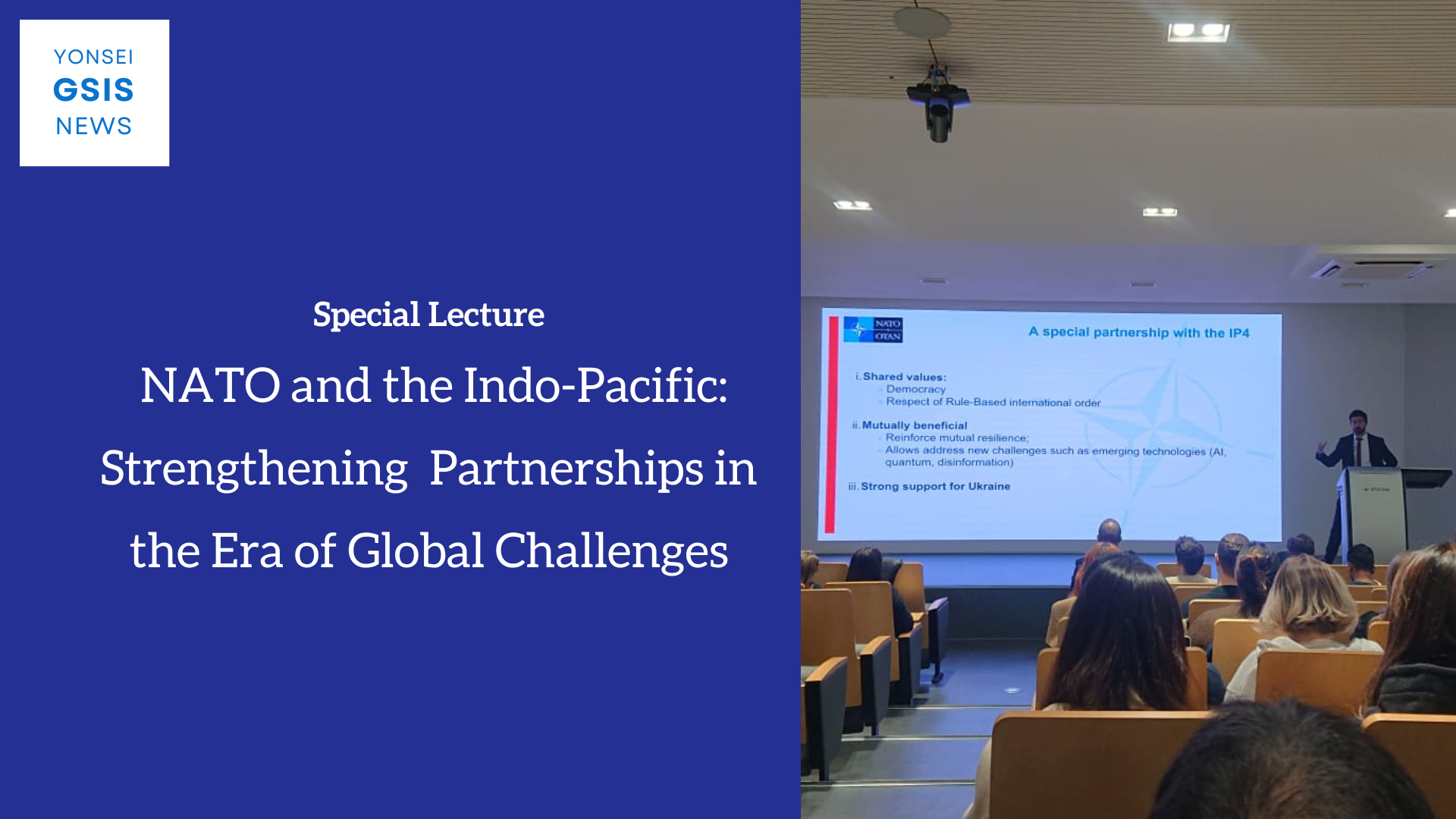- 제목
- [Newsletter] Special Lecture on NATO and the Indo-Pacific: Strengthening Partnerships in an Era of Global Challenges
- 작성일
- 2024.11.28
- 작성자
- 국제학대학원
- 게시글 내용
-

By Chiara Mazidi
Editor-in-Chief, GSIS Newsletter
As geopolitical dynamics shift and global challenges intensify, the importance of partnerships between NATO and the Indo-Pacific region has never been clearer. On Monday, November 25th, GSIS students had the chance to attend a special lecture by Dr. Pietro De Matteis, a member of NATO’s Public Diplomacy Division. The lecture, titled “NATO’s Partnerships with the Indo-Pacific: A Cooperation to Tackle Common Challenges,” shed light on how NATO and its Indo-Pacific partners are navigating the complexities of an evolving global order.
Dr. De Matteis explained how the ongoing Russian invasion of Ukraine was a pivotal moment in international relations. This conflict has underscored the importance of alliances and the shared responsibility of nations to uphold the rules-based international order (RBIO). NATO’s partnerships with the Indo-Pacific—particularly the IP4 countries (Japan, South Korea, Australia, and New Zealand)—are central to this effort. These nations, united in their commitment to sanctions against Russia, are enhancing cooperation with NATO to defend shared values and strengthen interoperability in areas like defense and technology.
Despite its growing ties with the Indo-Pacific, Dr. De Matteis emphasized that NATO remains a transatlantic alliance and has no intention of intervening directly in regional issues. Instead, the focus of the IP4 should be seen as a positive partnership.
Regarding China, Dr. De Matteis highlighted its unique position in the current geopolitical landscape. He emphasizes that China should condemn the invasion and its political and economic alignment with Russia. Furthermore, he explains that NATO views China rather as a systemic challenger than a direct military threat. The European Union’s continued engagement with China reflects this nuanced perspective.
Dr. De Matteis also touched on the unprecedented nature of the Ukraine war, marking the first time in history that non-European troops have been involved in a European conflict, meaning North Korean soldiers. This development underscores the global ramifications of regional conflicts and the necessity for robust deterrence mechanisms.
The lecture concluded with a call for NATO’s deterrence strategies to remain strong and for China to play a constructive role in the international community. Students left the event with a deeper understanding of NATO’s evolving role and the significance of its partnerships in addressing shared global challenges.
This engaging session offered a timely and insightful look at how alliances like NATO adapt to an increasingly interconnected and complex world, providing GSIS students with current knowledge.

